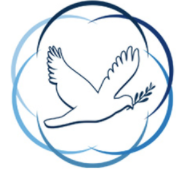Holding Powerful Institutions Accountable: Advocacy Within
Location
Littlefoot A Room 124A
Start Date
21-4-2023 1:00 PM
End Date
21-4-2023 2:15 PM
Publication Date
2023
Disciplines
Arts and Humanities | Law | Social and Behavioral Sciences
Description
This presentation details how insider individual anger can transform into systemic hate of the outsider. Authors describe an ethos of insider privilege and discrimination at a small state supported institution of higher education. The presentation will highlight how a small group of female professors held a powerful institution accountable. A starting point for discussion will provide lessons learned and include proactive strategies for leadership teams and chief executive officers. Special attention will be given to those who advocate for inclusion and openness but find themselves working within institutions and organizations that are seemingly entrenched in a culture of limited vision based on antiquated and flawed traditions and practices.
In 1996, the United States Supreme Court voted 7-1 to admit women to the all-male state supported Virginia Military Institute (VMI). Shortly after, the VMI Board of Visitors voted 9-8 to admit women. In August 1997, thirty women enrolled, ready to succeed. In the months and years of transitioning from an all-male educational institution to a coeducational environment, women in the corps of cadets faced a hostile climate. These sentiments extended from members of the governing body of VMI, corps of cadets, the alumni and the local community. Ten years after the women arrived, these sentiments continued. It became evident that the hate-related behaviors were cyclic; being passed down from seniors to first year students. In the early years the hostility was covert but over time became overt. Without a clear line of no tolerance, pockets of hate remained. As women professors, we fought to create equitable educational experiences for all students. Progress took years of advocacy with multiple internal complaints to those responsible for policies. Our advocacy faced many internal constraints and resulted in intervention from the U.S. Department of Education, Office of Civil Rights (OCR). The resolution requirements put forth by the OCR provided VMI with a path toward equitable education for all. These requirements delineated the need for student resources, and reviews of institutional policies and procedures, governed by the law.
Description Format
html
Recommended Citation
Vargas, Stacey, "Holding Powerful Institutions Accountable: Advocacy Within" (2023). International Conference on Hate Studies. 19.
https://repository.gonzaga.edu/icohs/2023/seventh/19
Full Text of Presentation
wf_no
Media Format
flash_audio
Session Title
Strategies and Approaches to Challenging Hate
Type
Panel
Holding Powerful Institutions Accountable: Advocacy Within
Littlefoot A Room 124A
This presentation details how insider individual anger can transform into systemic hate of the outsider. Authors describe an ethos of insider privilege and discrimination at a small state supported institution of higher education. The presentation will highlight how a small group of female professors held a powerful institution accountable. A starting point for discussion will provide lessons learned and include proactive strategies for leadership teams and chief executive officers. Special attention will be given to those who advocate for inclusion and openness but find themselves working within institutions and organizations that are seemingly entrenched in a culture of limited vision based on antiquated and flawed traditions and practices.
In 1996, the United States Supreme Court voted 7-1 to admit women to the all-male state supported Virginia Military Institute (VMI). Shortly after, the VMI Board of Visitors voted 9-8 to admit women. In August 1997, thirty women enrolled, ready to succeed. In the months and years of transitioning from an all-male educational institution to a coeducational environment, women in the corps of cadets faced a hostile climate. These sentiments extended from members of the governing body of VMI, corps of cadets, the alumni and the local community. Ten years after the women arrived, these sentiments continued. It became evident that the hate-related behaviors were cyclic; being passed down from seniors to first year students. In the early years the hostility was covert but over time became overt. Without a clear line of no tolerance, pockets of hate remained. As women professors, we fought to create equitable educational experiences for all students. Progress took years of advocacy with multiple internal complaints to those responsible for policies. Our advocacy faced many internal constraints and resulted in intervention from the U.S. Department of Education, Office of Civil Rights (OCR). The resolution requirements put forth by the OCR provided VMI with a path toward equitable education for all. These requirements delineated the need for student resources, and reviews of institutional policies and procedures, governed by the law.


